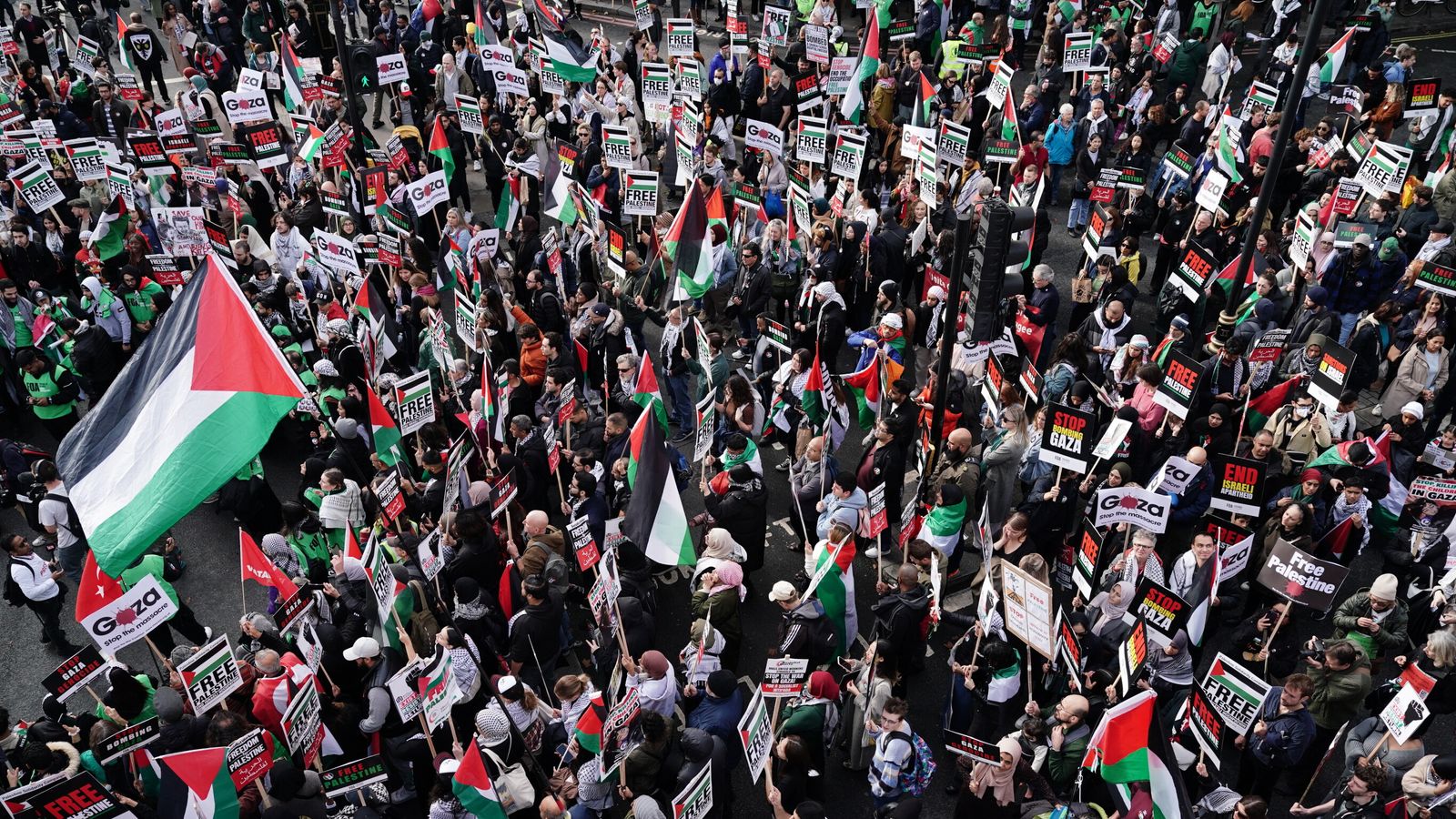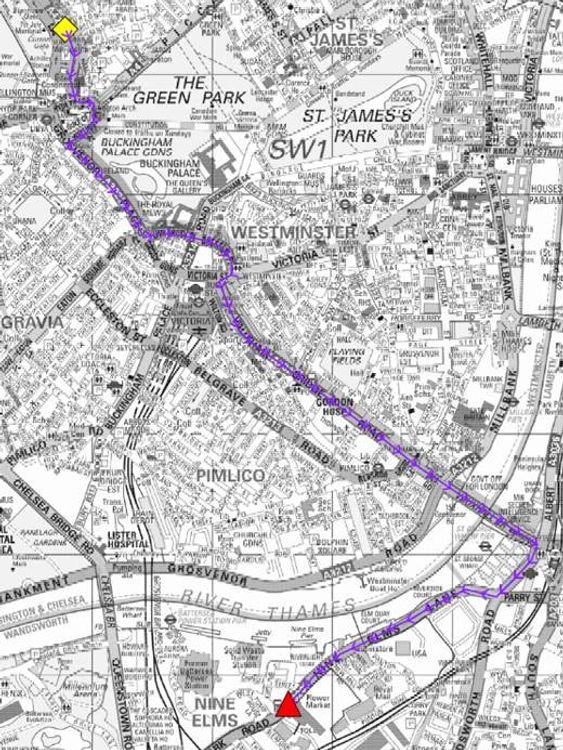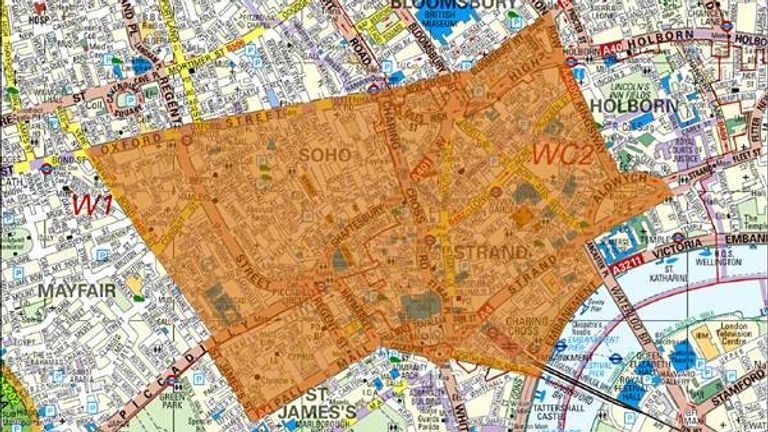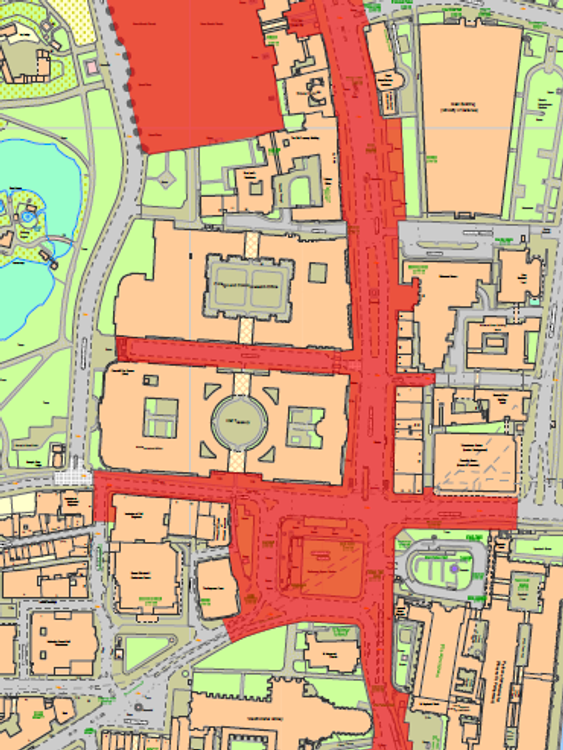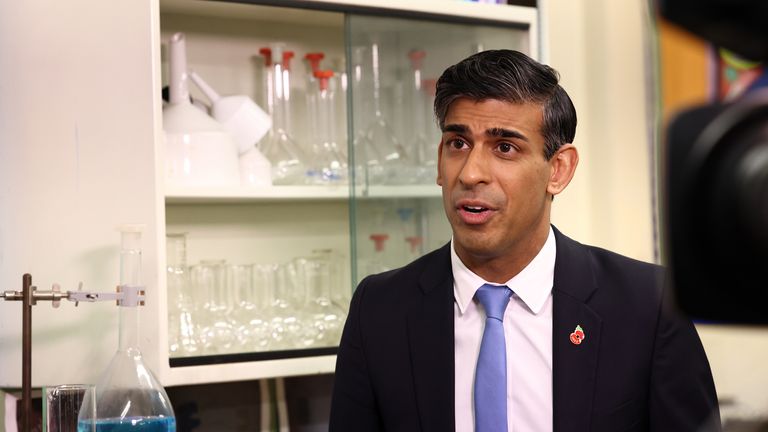Hundreds of thousands of protesters are set to head to central London today to call for a ceasefire in Israel’s war against Palestinian militant group Hamas.
The march has drawn criticism from the prime minister and home secretary because it coincides with Armistice Day, when people across the UK remember the moment the guns of the First World War fell silent.
At noon demonstrators will gather in Hyde Park, around a mile from the Cenotaph, before marching to the US embassy in Vauxhall on the south bank of the Thames, with the demonstration set to end at 4pm.
Israel-Gaza latest: ‘Intense violence’ reported at Gaza hospital
Organisers have predicted half a million people will gather in the capital in the “biggest demonstration” over the Israel-Hamas conflict, with the police bracing for huge numbers.
Previous rallies have proven controversial because some protesters have chanted offensive slurs, clashed with police and carried images appearing to support extremist groups.
Prime Minister Rishi Sunak has labelled the protest “provocative and disrespectful,” while Home Secretary Suella Braverman provoked widespread condemnation for an article she wrote in The Times in which she described those taking part as “hate marchers” and accused the police of “playing favourites” with left-wing groups over right-wing and national activists.
However, Met Commissioner Sir Mark Rowley resisted banning the march and said after looking at intelligence the legal threshold for a ban had not been met – with the prime minister accepting the protest will go ahead.
The row caused by Ms Braverman’s article – which linked the pro-Palestinian demonstrations to marches seen in Northern Ireland – has seen her come under considerable criticism from within her own party, with Chancellor Jeremy Hunt distancing himself from the home secretary’s criticism of the Met, though Downing Street said it has full confidence in her.
Subsequently, Mr Sunak has issued a “plea for unity” ahead of the march urging those taking part to do so “respectfully and peacefully”.
He said in a statement: “This act of remembrance is fundamental to who we are as a country and I want to reassure those wishing to pay their respects, attend services and travel that they can and should do so.
“It is because of those who fought for this country and for the freedom we cherish that those who wish to protest can do so, but they must do so respectfully and peacefully.
“Remembrance weekend is sacred for us all and should be a moment of unity, of our shared British values and of solemn reflection.”
It is feared breakaway groups from the main pro-Palestine march could look for trouble by disrupting Armistice events, while far-right counter-demonstrators could further stretch police resources amid fears they could clash with pro-Palestinian protesters.
English Defence League founder Tommy Robinson has said men are “mobilising” to be in the capital, while the Democratic Football Lads Alliance has posted on Facebook to say its demonstrators will act as a “buffer” for those who wish to head to the Cenotaph to pay their respects.
Read more:
Israel to pause fighting in Gaza for four hours a day, US says
Teens charged with criminal damage for spraying ‘Free Palestine’ on town cenotaph
Poll reveals what Britons think of marches on Armistice Day
Nearly 2,000 officers on duty
More than 1,000 police officers have been drafted in from outside forces to monitor the march, with the Met saying 1,850 officers will be on duty on Saturday and 1,375 on Sunday.
Click to subscribe to the Sky News Daily wherever you get your podcasts
Officers have set up exclusion zones covering the Cenotaph, Whitehall, Horse Guards Parade, the Westminster Abbey Field of Remembrance and other relevant areas.
The Met says “anyone believed to be part of, or associated with, the pro-Palestinian demonstration trying to assemble in this area can be arrested”.
The force said: “We know the cumulative impact continued protest, increasing tensions, and rising hate crimes are having across London and the fear and anxiety our Jewish communities in particular are feeling.
“They have a right to feel safe in their city, knowing know they can travel across London without feeling afraid of intimidation or harassment.
“During protests since the attacks on 7 October we’ve seen small groups break away from planned events.
“Their behaviour has been escalating and becoming more violent and distressing to the public. Over the last four major events we have made more than 100 arrests for offences including supporting proscribed organisations and serious hate crime.”
